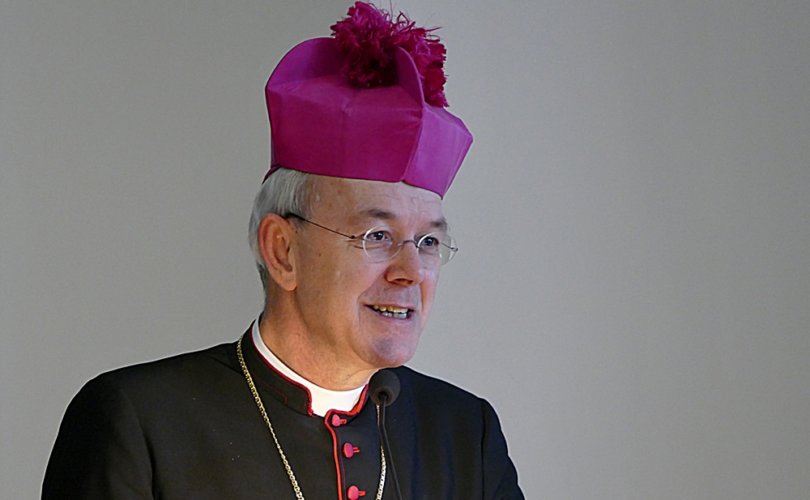SIGN THE PETITION: Support Cdl. Müller's doctrinal manifesto amid Pope Francis' confusion! Sign the petition here.
February 13, 2019 (LifeSiteNews) – Bishop Athanasius Schneider, auxiliary bishop of Astana, Kazakhstan, supports and welcomes Cardinal Gerhard Müller’s new Manifesto of Faith.
In a statement to LifeSiteNews, Bishop Schneider said he welcomes this manifesto as “a necessary and a very timely initiative, edifying the Faith and bringing light in the enormous spiritual confusion,” which can bring “to the faithful consolation and encouragement.”
Today, even such a simple statement of the truths of the faith is “often not anymore tolerated and is perceived even as a provocation, as one could see this, for instance, from the prompt, intolerant and astonishingly aggressive reaction with which Cardinal Walter Kasper has rejected the Manifesto of Faith of Cardinal Müller,” he said. (Cardinal Kasper’s rebuke can be read here.)
Thus, Bishop Schneider hopes for a growing resistance against the “disfigurement” of the Catholic faith, a resistance that would be “a numerically growing, uniform voice of the true Faith, an ‘una vox verae fidei,’ comprising all members of the Mystical Body of Christ, representatives both of the Magisterium and of the Lay Faithful.”
Cardinal Müller issued his Manifesto upon requests from clergy and laity alike who asked him to confirm the essential tenets of the Catholic faith in the face of growing doctrinal and moral confusion in the Church. The full Manifesto may be read here.
Readers are invited to express their own sensus fidelium by signing a petition in support of Cardinal Müller. This petition has so far been signed by nearly 14,000 people.
Support for Cardinal Müller's Manifesto of Faith
Bishop Athanasius Schneider
Cardinal Gerhard Ludwig Müller’s recent Manifesto of Faith is a necessary and a very timely initiative, edifying the Faith and bringing light in the enormous spiritual confusion, which for quite a while reigns in the life of the Church and which has reached in our days unimagined dimensions.
This initiative brings to the faithful consolation and encouragement. In this Manifesto of Faith is being made from the mouth of a high-ranking representative of the Church’s hierarchy a public and unmistakable profession of the immutable Catholic Faith. This profession from Cardinal Müller covers particularly those truths of the Faith and of its sacramental practice, which in our days are mostly disfigured, being such a disfiguration often through a cunning and gnostic interpretation passed off as a hermeneutic or a “development of doctrine, in continuity.”
A clear profession of the Divinely revealed truths is in our days in the life of the Church often not anymore tolerated and is perceived even as a provocation, as one could see this, for instance, from the prompt, intolerant and astonishingly aggressive reaction with which Cardinal Walter Kasper has rejected the Manifesto of Faith of Cardinal Müller. With his reasoning against the Manifesto of Faith, Cardinal Kasper has only demonstrated that he himself does not anymore live in the true Faith of the Apostles and of the Church of all times, but, on the contrary, he represents a Christianity that in the manner of a gnosis has built up for itself a world of an alleged faith after the taste of one’s own ego or the predominance of the respective “Zeitgeist” (the spirit of the age).
Cardinal Müller’s initiative of Faith deserves full recognition. It is an important contribution to stem the flood of the neo-gnostic Christianity inside the Catholic Church. One must wish and pray, that inside the Church there will now sound a numerically growing, uniform voice of the true Faith, an “una vox verae fidei,” comprising all members of the Mystical Body of Christ, representatives both of the Magisterium and of the Lay Faithful. In their profession of Faith, they should not allow themselves to be confused or intimidated by anybody – not even from a Cardinal Kasper – for with Saint Paul they can serenely and convincingly say: “I know Whom I have believed! (scio, Cui credidi!)” (2 Tim. 1: 12).



